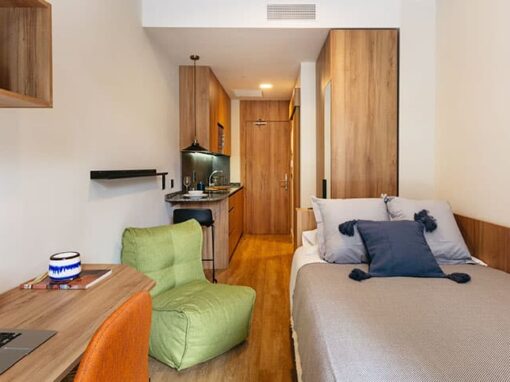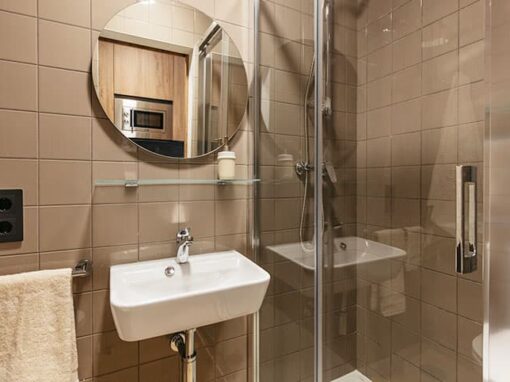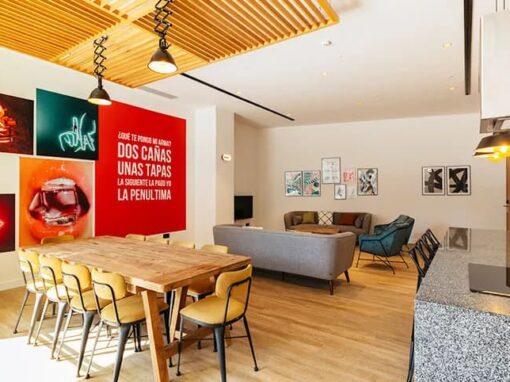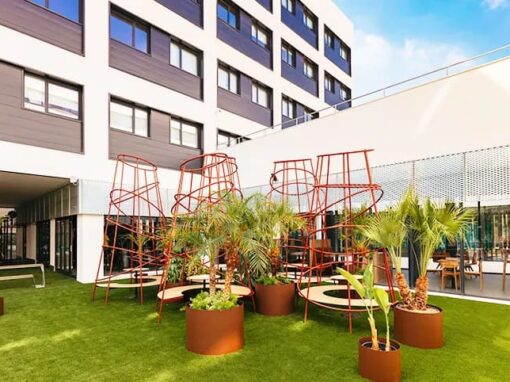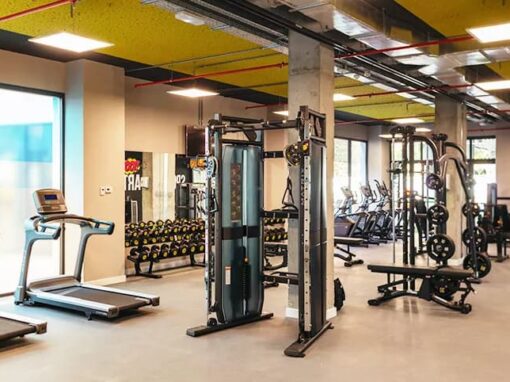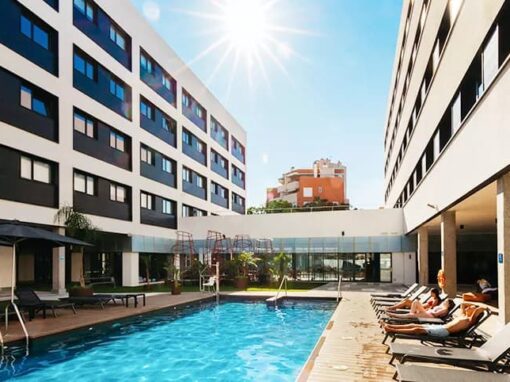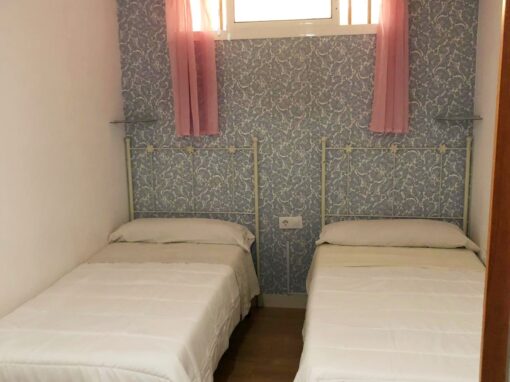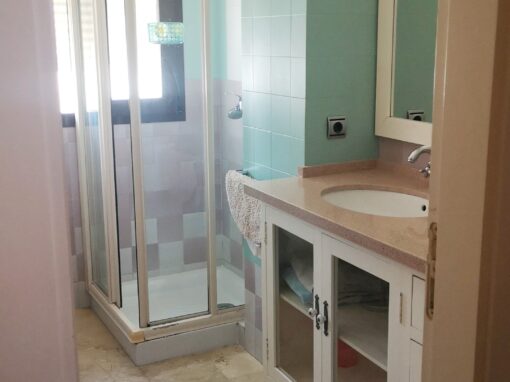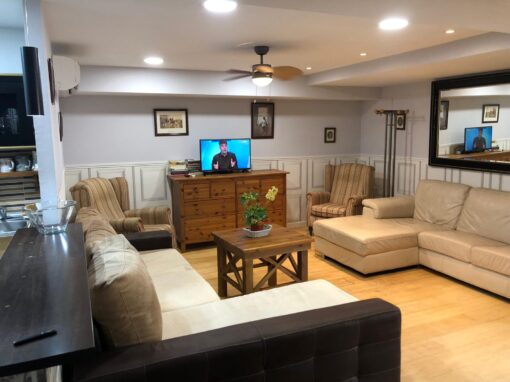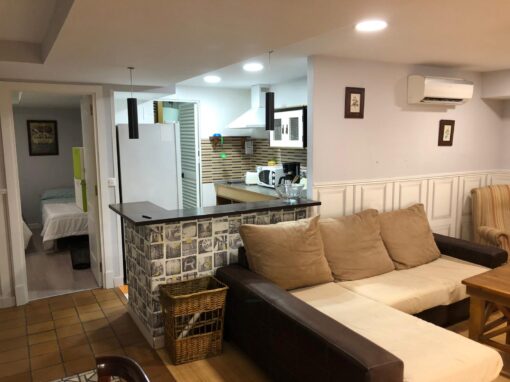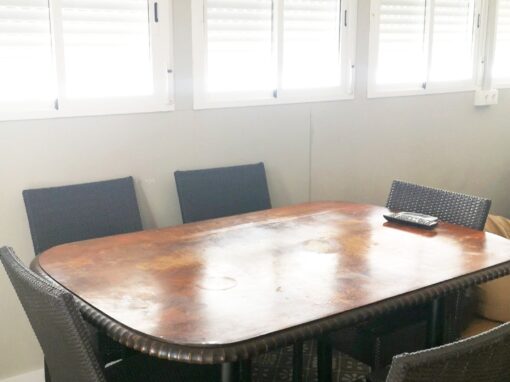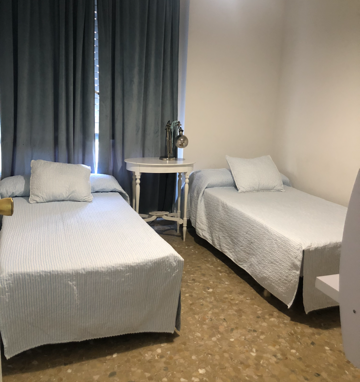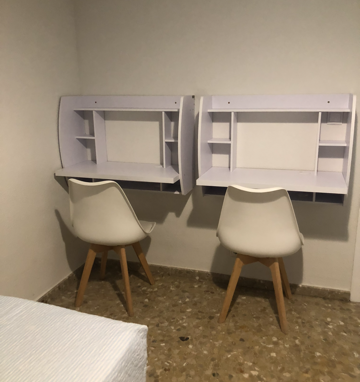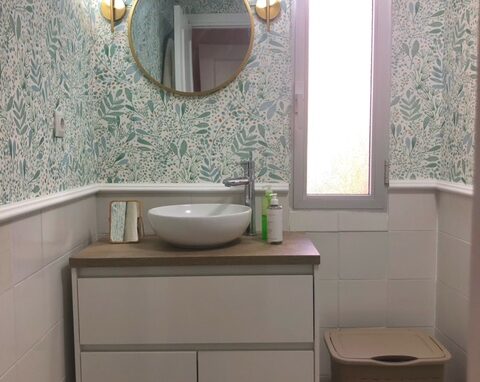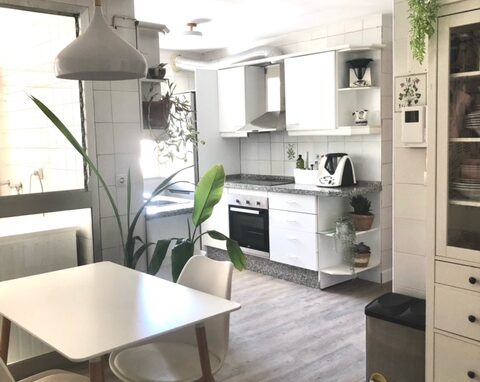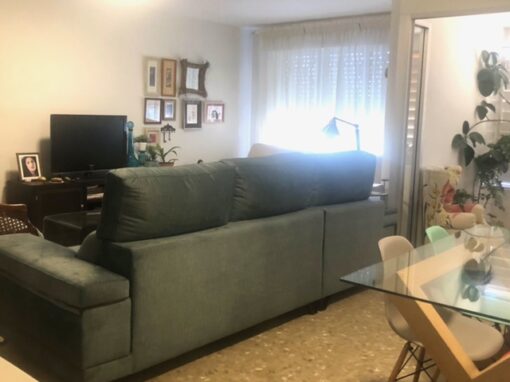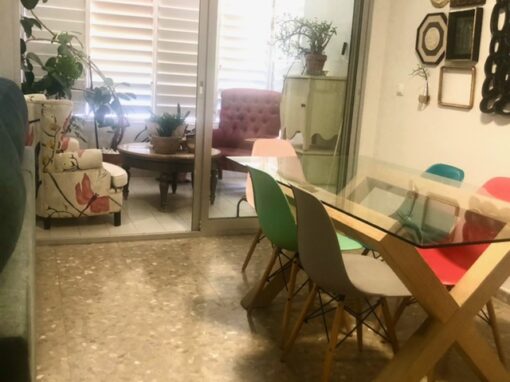This program requires a visa! Don’t forget to check your passports! Review passport and visa info on the API blog!
Academic Programs International Presents
Spanish Culture Studies
in Seville
For Quinnipiac University Students
Program Description, Requirements and More!
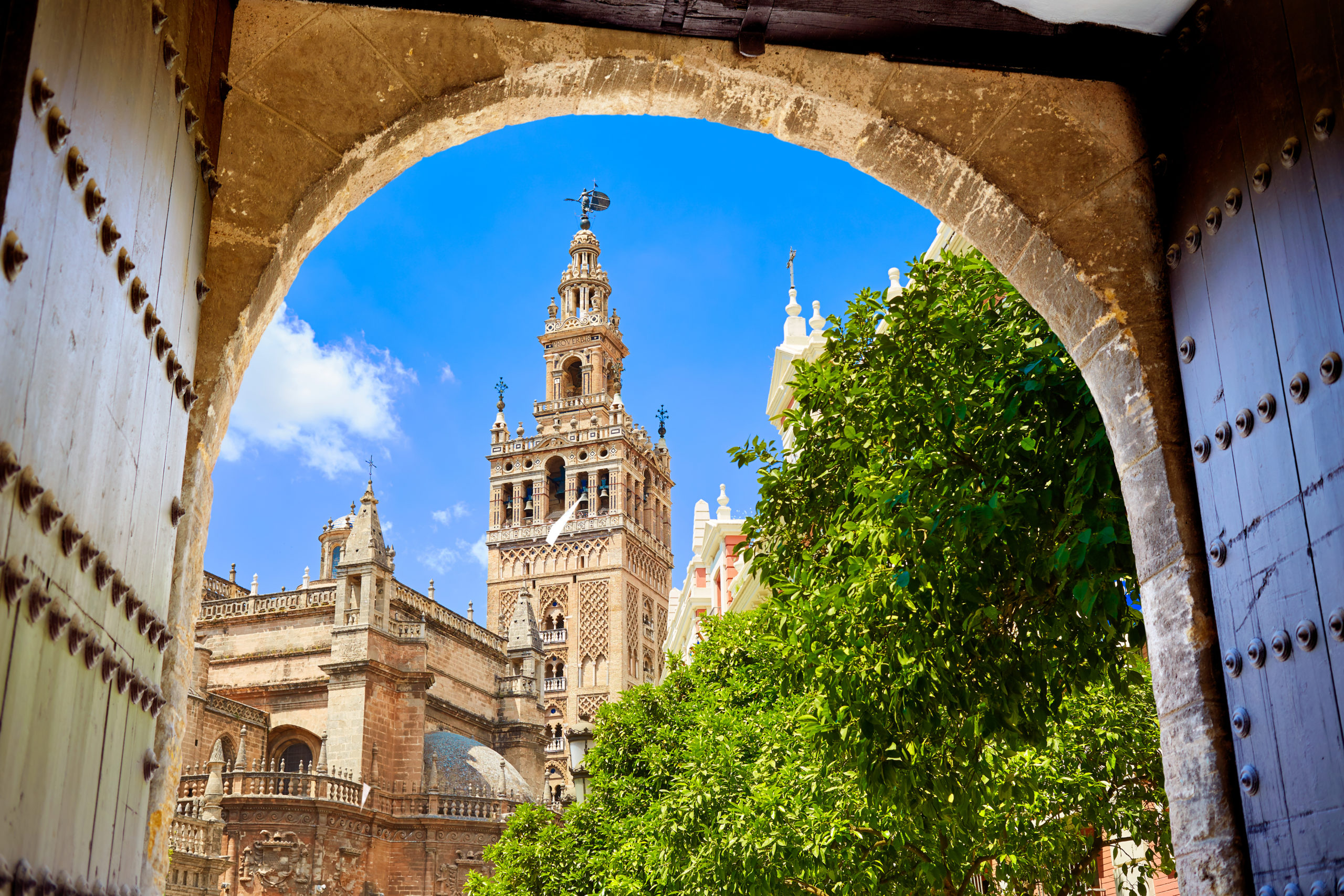
Designed for students who wish to study abroad in Seville with no previous knowledge of Spanish, this Spanish Culture Studies program offers a number of cultural courses taught in English, and many also feature some Spanish language instruction.
In addition, Spring semester students have the opportunity to take Anatomy & Physiology II, which is taught exclusively for QU students by University of Seville faculty!
The Spring program also includes a Wellness Weekend with Tami Reilly, QU Director of Fitness and Well Being, with a full schedule of activities focused on the mind and body’s health.
- Minimum 3.0 G.P.A.
- Students with a GPA between 2.90 and 2.99 may apply for a waiver that will be reviewed by QU.
- Open to beginning level Spanish speakers
- Completed API application
- University Approval Form
- One letter of recommendation
- Official transcript
- Entry requirements: valid passport with student visa. Visa processing is available for this program. You will receive further details from API about this service once we receive your application.
- Students are required to attend a Quinnipiac University study abroad semester info session the semester prior to travel.
Spring Session:
January 29 – May 10, 2024
- Spring QU Application Deadline: October 15, 2023
- Spring API Application Deadline: October 15, 2023
Fall Session:
TBD (September – December 2024)
- Fall QU Application Deadline: TBD
- Fall API Application Deadline: TBD
Program Costs:
Students will be charged with QU’s home tuition and fees & standard room rate for a semester abroad. QU board (meals) is not charged to the student. QU requires students to enroll in additional insurance, which includes overseas emergency and medical insurance and a security assistance plan.
For further details, please complete your QU application on the Quinnipiac study abroad portal: https://educationabroad.qu.edu/
EXCURSIONS
API students participate excursions designed to help familiarize them with the culture and surrounding areas of their host city and country. The following is a listing of potential excursions for API Seville programs. API may need to modify the excursions offered in a given term due to travel restrictions or health and safety concerns.

Madrid & Toledo
Expand the toggles below to learn more about Madrid and Toledo!
Madrid
Spain’s capital blends the modern with an important cultural and artistic heritage. Three of the most important art galleries in the world (the Prado, Reina Sofia and Thyssen-Bornemisza Museums) are all located in the center of Madrid.
All this, combined with the momentum of a society that is dynamic, liberal and welcoming, has turned this metropolis into one of the western world’s great capitals.
Toledo
Toledo, located south of Madrid, was declared ‘City of Mankind’s Heritage’ by UNESCO in 1986. It was capital of Spain from mid-6th to the mid-16th centuries, as evidenced by its impressive medieval architecture.
Known as the “City of the Three Cultures,” it served as a hub for Jews, Moors and Christians and has today become a symbol of religious tolerance. Walking through Toledo is like taking a magic journey into the past.

Córdoba, Granada, & Grazalema
Expand the toggles below to learn more about Córdoba, Granada, and Grazalema!
Córdoba
Granada
Grazalema
Grazalema (Cádiz province) is one of Spain’s most stunning natural parks. In 1977 this area was declared a “Reserve of the Biosphere” by UNESCO due to the exceptional variety and wealth of its fauna and flora. It consists of a massif karstic limestone with closed river basins, headstreams of the Guadalete and Majacete’s Rivers and tributaries of the Guadiaro.
It also comprises a mountain lagoon called ‘Laguna del Perezoso’. The park status envelopes several beautiful towns and villages; Grazalema, El Bosque, Ubrique, Zahara de la Sierra, Benaocaz, Benamahoma, Prado del Rey, and Villaluenga del Rosario are within the Cadiz side of the park.
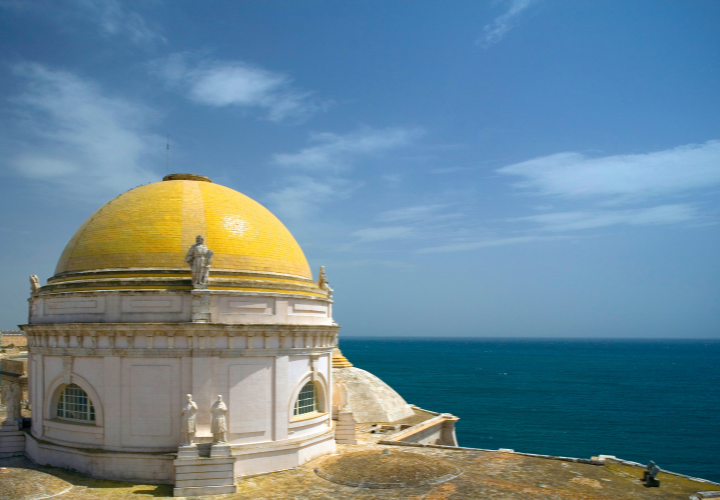
Cádiz & Puerto de Santa María
Expand the toggles below to learn more about Cádiz and Puerto de Santa María!
Cádiz
Cádiz has over 3000 years of history and is one of the oldest cities in Europe. For many years, Cádiz was the link between Europe and the New World which explains the many similarities between Cádiz and Havana, Cuba.
A walk around the city center is a joy to the senses with the sea, the streets, the Cathedral dome and the colorful houses along the coast.
Puerto de Santa María
El Puerto de Santa María is one of the most well-known towns in the Cádiz province due to its beautiful beaches, wonderful food and plentiful wineries. The wine produced in this location (typical of the Jerez area) is an important part of Spanish culture.
STUDENT HOUSING
API students in Seville can choose from three different housing options – students may choose to live in a premium student dorm, a student residencia, or with a host family. All housing options have been curated with a focus on student comfort, safety, and location.
Premium Private Studio in a Modern Student Dorm
*All images shown are for illustration only. Actual housing may vary.
This modern studio, located in a student-only building in central Seville, is the perfect spot to study, relax, and live your best life! Enjoy your own bedroom, kitchenette, ensuite bathroom, and study space. You’ll also have access to communal study and lounge spaces throughout the building, along with a pool and deck to help you enjoy those sunny Seville days.
With 200+ other American, International, and Spanish students living onsite, you’ll have the opportunity to build new relationships and create lifelong memories
This prime central location means you can explore the city center by foot and soak up all it has to offer.
This option requires an additional charge, which will be added to your total program cost.
Learn More
Why you’ll love living in a private studio in a student dorm:
- Great for students who want to cook their own meals and operate on their own schedule
- A student-only experience with a large community of potential friends
- Modern finishes and in-unit amenities
- Public transit nearby
What’s included:
- Bedding essentials
- Kitchen essentials
- Internet
- Utilities
What to expect:
- Private bedroom
- Private, ensuite bathroom
- Private kitchenette in-unit
- Pay-per-load, community laundry facilities
- Community amenities including study and lounge spaces; outdoor terrace and pool; onsite gym
- Commute to class by public transit or by foot
Classic Room in Historic Student Residencia
*All images shown are for illustration only. Actual housing may vary.
Make yourself at home in your shared or private room in a historic student residencia, located in central Seville! A residencia combines the benefits of a student-only experience with great services like regular room cleaning and meals.
Similar to a traditional boarding house, a residencia may accommodate anywhere between 20-100 international or Spanish students who share communal living and study spaces and bond over shared meals in the dining room. Plus, residencias are staffed by locals, providing you the opportunity to practice the language and enjoy having assistance on hand if you need support!
Located in central Seville, you’ll have the freedom to explore the city center by foot and soak up all it has to offer.
This option includes all the essentials for a safe and comfortable journey abroad. Shared rooms are included in the program price or choose a private room for an additional fee.
Learn More
Why you’ll love living in a residencia:
- Join a vibrant student-only community with plenty of opportunities to make new friends and connections
- Weekly cleaning, including bedding, personal laundry service, and daily meals included, so you can focus on your studies and enjoy your stay without any worries
- Conveniently located near public transit for easy access to everything the city has to offer
What’s included;
- Bedding essentials
- Weekly cleaning, including bedding and personal laundry
- Daily meals in the onsite dining room at specified dining times
- Internet
- Utilities
- Onsite staff
What to expect:
- Shared or private bedroom
- Shared bathrooms among multiple students, similar to a US dorm
- 3 meals a day in a shared dining room (excluding some holidays)
- Dietary restrictions can be accommodated, but may require an additional fee
- No kitchen access
- Regular laundry provided
- Commute to class by public transit or by foot
Live with a Local Host
*All images shown are for illustration only. Actual housing may vary.
Jump into an authentic Spanish experience with a Local Host. Enhance your language skills and create unforgettable memories; savor meals around the kitchen table, celebrate cultural traditions, and truly become a part of the local community. You’ll stay in a shared or private room and enjoy regular cleaning, laundry, and most meals. You’ll live in a residential neighborhood, allowing you to enjoy the warmth and comfort of typical Spanish life.
All Local Hosts have been vetted and carefully selected by API.
This option includes all the essentials for a safe and comfortable journey abroad. Shared rooms are included in the program price or upgrade to a private room for an additional fee.
Learn More
Why you’ll love living with a local host:
- A great way to learn the language, with instant cultural immersion
- Weekly cleaning, laundry, and some meals included, so you can focus on your studies and enjoy your stay without any worries
- Former student approved, so you can be sure it’s a great place to live and study
- Public transit is nearby for easy access to all the city has to offer
- Create a bond that can last a lifetime
What’s included:
- Bedding essentials
- Internet
- Utilities
- Weekly laundry and bedroom cleaning
- Breakfast (7x a week), Lunch (7x per week), and Dinner (7x a week)
What to expect:
- A Local Host who’s excited to help you experience Spanish life
- A shared or private bedroom (for an additional fee)
- Limited or no kitchen access (varies by Host)
- Shared bathroom
- Dietary restrictions can be accommodated, but may require an additional fee
- Commute to class by public transit or by foot
ACADEMICS
Designed for students who wish to study abroad in Seville with no previous knowledge of Spanish, this Spanish Culture Studies program offers a number of cultural courses taught in English, and many also feature some Spanish language instruction.
COURSE INFORMATION
Students may choose 4-5 courses offered by the Department of Philology or by the Department of Geography & History. In addition, Spring semester students have the opportunity to take Anatomy & Physiology II, which is taught exclusively for QU students by University of Seville faculty!
Students with an advanced level of Spanish (3+ semesters of college-level Spanish) may opt to select up to two courses from the Spanish Language & Humanities program.
COURSE EQUIVALENCIES
Click here to view QU Course Equivalencies. Please note that the courses offered may change slightly each semester. For the most up-to-date course listing, please use API’s Class Finder tool.
CREDIT INFORMATION
Each course is equivalent to 3 semester credits unless otherwise noted. Most API partner universities in Spain operate on the contact hour system, wherein the number of credits earned depends on the time spent in class. To determine the conversion of contact hours to U.S. semester credits, divide the contact hours available by 15.
Ready to get started?
Still have Questions?
Complete the form to get in touch, and we’ll follow up to answer any questions you may have!
COURSE EQUIVALENCIES
Anatomy & Physiology II
Available Spring Semester Only
QU Course Equivalent: BIO 212 Human Anatomy and Physiology II (3 credits)
This course is a continuation of BIO 211 with an emphasis on the anatomy and physiology of the major body systems. Systems studied in this course include cardiovascular, lymphatic, immune, respiratory, urinary, digestive and reproductive. Emphasis is on structure, function, interdependence and the maintenance of homeostasis. Relevant diseases also are presented. Primarily for students in bachelor’s degree health science programs. Second semester of a full-year course; must be taken in sequence. Must be taken in conjunction with BIO 212L.
QU Course Equivalent: BIO 212L Human Anatomy and Physiology II Lab (1 credit)
Lab to accompany BIO 212. A detailed study of the major body systems utilizing anatomical models, cadavers, animal specimens, histological slides, physiological experiments and simulations. Must be taken in conjunction with BIO 212.
FS-02 Conversation and Composition in Spanish for American Students
QU transfer equivalent: SP 101 (UC Breadth Elective)
The purpose of this course is to develop the students’ ability to express themselves orally as well as in writing in basic sociolinguistic contexts, enabling them to interact effortlessly while taking into consideration the contrast with their native tongue. Students learn to initialize and maintain a conversation with a limited vocabulary, to spontaneously produce sentences and elementary conversational routines, to narrate and describe familiar social situations and to write various basic texts paying attention to syntactic and orthographic accuracy.
- Language of Instruction: Spanish Language Level Required: Beginner
- Recommended US semester credits: 3
- View Syllabus
Learning Spanish Vocabulary
Este curso tiene como objetivo que el alumno obtenga un conocimiento gradual del vocabulario atendiendo a sus diferentes variedades. Se trata de una asignatura esencialmente práctica que hace hincapié en la adquisición de las unidades fraseológicas, esenciales para el dominio del español coloquial, ası́como en el conocimiento de las relaciones sinonı́micas, de especial interés para el enriquecimiento léxico, y la adecuación a las diferentes situaciones comunicativas, por lo que se tendrá en cuenta una visión pragmática. Del mismo modo, se abordará la importancia del diccionario para el aprendizaje léxico.
- Language of Instruction: Spanish
- Recommended US semester credits: 3
- View Syllabus
Introduction to Spanish Cultural Studies
The main goal of this course is to give students a core familiarity with Spanish history and culture. They are expected to come away from the class with a broad sense of the tensions and turning-points that have shaped the Spanish past, as well as of the major historical actors, institutions, and achievements that scholars associated with each period.
- Language of Instruction: English
- Recommended US semester credits: 3
- View Syllabus
FS-07 Introduction to Spanish Cultural Studies
If taught in English: QU transfer equivalent: SP 210 (UC Humanities and Intercultural Understanding)
If taught in Spanish: QU transfer equivalent: SP 343 (UC Humanities)
The main goal of this course is to give students a core familiarity with Spanish history and culture. They are expected to come away from the class with a broad sense of the tensions and turning-points that have shaped the Spanish past, as well as of the major historical actors, institutions, and achievements that scholars associated with each period.
- Language of Instruction: English
- Recommended US semester credits: 3
- View Syllabus
Teaching English To Spanish Students: Methodology And Practice
This training course offers a theoretical and practical approach to the teaching of English as a foreign language (EFL) to Spanish-speaking students. Classroom practice will be fostered which includes activities in the class, activities outside the class under the supervision of a tutor and the opportunity to take part of the course in a Spanish school with Spanish students in the city of Seville. This way, not only theoretical content but also the cultural aspects which are involved in the practice of teaching English as a foreign language will be dealt with.
- Language of Instruction: English
- Recommended US semester credits: 3
- View Syllabus
FS-12 Progressive Spanish for English- Speaking Students
QU transfer equivalent: SP 201 (UC Breadth Elective)
This course is aimed at English-speaking students who already have a basic knowledge of Spanish. Its key objective is to improve their communication skills by means of the consolidation of their grammar competence and of the introduction of practical vocabulary so as to enable them to cope with the usual communication situations of everyday life.
- Language of Instruction: Spanish
- Language Level Required: Beginner
- Recommended US semester credits: 3
- View Syllabus
FS-17 A Practical Course in Teaching English as a Foreign Language Methodology
This training course offers a theoretical and practical approach to the teaching of English as a foreign language (EFL) to Spanish-speaking students. Classroom practice will be fostered which includes activities in the class, activities outside the class under the supervision of a tutor and the opportunity to take part of the course in a Spanish school with Spanish students in the city of Seville. This way, not only theoretical content but also the cultural aspects which are involved in the practice of teaching English as a foreign language will be dealt with.
- Language of Instruction: English Spanish
- Recommended US semester credits: 3
- View Syllabus
Languages of International Development: Healthcare and Voluntary Work
QU Equivalent: AN 237 Health and Medicine Around the World
This course will examine a range of international development topics related to healthcare and medicine around the globe. Students will explore contemporary issues affecting the institutions that provide healthcare and the people who seek health services. Students will also look into the how international development takes place and is developed, why it is necessary, and how it is related to healthcare.
- Language of Instruction: English
- Recommended US semester credits: 3
- Download Syllabus
Painting in Literary Seville (Spanish)
QU Course Equivalency: SP 343
- Language of Instruction: Spanish
- Rec. US semester credits: 3
- View Syllabus
Conocer la ciudad de Sevilla y su patrimonio artı́stico combinando la Literatura de Sevilla con el Arte práctico, la pintura. Dar a conocer una ciudad y su patrimonio requiere de un acercamiento muy documentado a sus lugares artı́sticos y emblemáticos. Por otro lado, la pintura facilita la visión desde la perspectiva artı́stica al detenerse ante el objetivo a pintar y estudiar su naturaleza e historia. Elegimos distintas técnicas, desde el lápiz, carboncillo, tinta, a la acuarela. Lo/as alumno/as pasarán jornadas agradables en las plazas, parques y calles de Sevilla, el rı́o Guadalquivir, el Alcázar, el Barrio Santa Cruz, el Parque Marı́a Luisa, etc. ¡Conocerán la ciudad, sus rincones, su arquitectura como ningún otro alumno! Al final del semestre los estudiantes tendrán una buena colección de cuadros suyos como recuerdos o regalos para sus amigos y su familia. Además, adquirirán un gran conocimiento sobre pintura, perspectiva, composición que le ayudara a apreciar el arte a lo largo de sus vidas.
Painting in Literary Seville (English)
QU Equivalent: Fine Arts
- Language of Instruction: English
- Recommended US semester credits: 3
- View Syllabus
This course will cover the city of Seville and its artistic heritage combining the literature of Seville with the practical art of painting. We choose different techniques: pencil, charcoal, watercolor, and ink, etc. The students pass enjoyable sessions in the parks, plazas, streets, and monuments of Seville, the Guadalquivir River, the Alcázar, the Barrio Santa Cruz, taking time to study their subject, its form, and history.
Great Masters and the Major Artistic Trends in Spain During the Twentieth Century
QU Equivalent: UC Fine Arts
This course will analyze the principal trends in Spanish art during the twentieth century. The course has chosen those artists who are representative of certain developments in a key way and through whom, in general terms, Spanish art in the 20th century may be explored.
- Language of Instruction: English
- Recommended US semester credits: 3
- View Syllabus
Photographing the Literary Seville
This course will examine the literary richness of Seville through the photographic lens. We will learn about how to better control our cameras, fundamental photographic techniques and the history of photography and apply this knowledge to the myths and stories based here. Students will also explore the city and its surroundings during field trips and learn to look at images critically and critique them in a group setting. An SLR digital camera with full manual functions is required.
- Language of Instruction: English
- Recommended US semester credits: 3
- View Syllabus
Photography: Theory and Techniques
QU transfer equivalent: UC Fine Arts
This course has the following objectives:
- To learn how to read photographs and its meanings;
- To develop technical photographic skills;
- To understand the possibilities of photography as a way of expression and information;
- To understand the importance of new technologies applied to photography;
- To improve an analytic vision of contemporary images;
- To improve social skills and group work.
Language of Instruction: English
Recommended US semester credits: 3
The Image of Spain Through Film and Digital Fiction
This course provides students with a route-map through those Spanish movies, as well as those from other countries, which deal with the image of Spain from different perspectives. Keeping visiting students in mind, this course spans a wide range of cultural perspectives, thus taking it beyond the confines of the cinematic and the historical sensu stricto.
QU Equivalent: UC Breadth Elective
- Language of Instruction: English
- Recommended US semester credits: 3
- View Syllabus
Contemporary Spanish Cinema
En atención al alumnado extranjero, la asignatura se enfoca desde una amplia perspectiva cultural que trasciende lo estrictamente cinematográfico e historicista. La película, entendida como obra audiovisual, se enjuicia como un texto, expresión de un autor, vinculado a los condicionamientos de un contexto social, histórico, lingüístico, literario, etc.
QU Course Equivalency: SP 399 at QU
- Language of Instruction: Spanish
- Recommended US semester credits: 3
- View Syllabus
FS-09 Music and Society: Theory and Practice of Flamenco
QU transfer equivalent: MU 130 Understanding Music (UC Fine Arts)
The aim of this course is to acquire an aural, visual, and theoretical understanding of Flamenco, of the streams of culture which created it, and of its role within Spanish culture, and on using the study of Flamenco as a vehicle to explore the relationship between art and culture, music and society, and the ways in which we think, talk and learn about Flamenco. The intention of the practical part of the course, the Flamenco dance class, is designed to give students an understanding of the mechanics, aesthetics, and basic canons of an art form that is so often described as being purely spontaneous and free. At the end of the course, students will perform the simple choreography they have learned, accompanied by a professional singer and guitarist. This tends to give them an entirely new appreciation of the complexity of both the dance form and the culture in which it is embedded. Evaluation in this part of the class sessions is based on attendance, effort and improvement, each student performing at their own level; ability or prior dance training is not necessary.
- Language of Instruction: English
- Recommended US semester credits: 3
- View Syllabus
Gender Views in Contemporary Spanish Literature and Cinema
QU transfer equivalent: UC Humanities, SP 343
This course explores gender representations (ranging from feminist perspectives, gender performances, or the theory and practice of female writing, to questions of sexual identity, patterns of masculinity and queer theory) within the Spanish literature and cinema produced during the last three decades.
- Language of Instruction: English
- Recommended US semester credits: 3
- View Syllabus
Literature and Cuisine – Writing, Cooking, Eating
La intención de este curso es acercarnos al mundo de la cocina y la comida en diferentes épocas a través de la Literatura. No pretende ser exhaustivo ni totalizador, sólo intenta servir de humilde aperitivo que abra el apetito para el gran banquete que es la literatura en su relación con la comida, la cocina, la alimentación y la gastronomı́a.
- Language of Instruction: Spanish
- Recommended US semester credits: 3
- View Syllabus
Social Psychology
QU Equivalent: UC Social Sciences
This course is an introduction to the field of social psychology. Social psychology is a subfield of the science of psychology that focuses on the perceptions, thoughts, feelings, and behaviors of individuals and groups within a social context. This class will give students a broad overview of the major theories and findings within social psychology.
- Language of Instruction: English
- View Syllabus
The Social Psychology of Language Learning
The QU equivalency for this course is QU PSY 200 UC Social Sciences
This course is an introduction to second language acquisition and how a non-native language (L2) is learned once a first language (L1) has already been developed. Second language acquisition is a dynamic process that millions of individuals worldwide are engaged in; it is also a growing interdisciplinary field of study within the mega field of applied linguistics.
- Language of Instruction: English
- Recommended US semester credits: 3
- View Syllabus
Spain's Classical Heritage: Between History and Mythology
QU Equivalent: UC Humanities
The main goal of this course is to give students an overview of Spain’s Classical heritage. The course pays special attention to Phoenician, Greek and Roman presence in Spain, not only from a historical point of view, but also taking into account the mythological construction of Spain ́s past and key cultural traditions. The course also explores Spain’s religious background, mainly the long process of Christianization of Southern Spain.
- Language of Instruction: English
- Recommended US semester credits: 3
- View Syllabus
U.S.- European Relations Since World War II
QU transfer equivalent: UC Social Science
This course will provide students with the theoretical framework necessary to help them think critically about transatlantic relations at many different, yet inter-related levels: political, military, security-based, cultural, and economic.
- Language of Instruction: English
- Recommended US semester credits: 3
- View Syllabus
The Arab World Today: Contemporary History and International Relations
QU Equivalent: UC Breadth Elective
This course will introduce students to the contemporary history of the Arab world and its international relations during the 20th and 21st centuries. It will describe the major events in the history of the Eastern (Mashreq) and Western (Maghreb) Arab states during this period and of the development of their relations with Europe and the United States. Special attention will be paid to Spain’s relations with the Maghreb region, particularly with Morocco.
- Language of Instruction: English
- Recommended US semester credits: 3
- View Syllabus
Contemporary Spain: Economy, Society and Environment
QU Equivalent: UC Social Sciences AN 200
This course will focus on the ways in which relationships between people and the natural environment, as well as patterns of spatial relationships, vary throughout Spain. It will explain how these relationships produce the distinctiveness of particular places, landscapes, and patterns of environmental and human attributes, as well as societies and identities, and provide students with the ability to conceptualize these relationships and their outcomes across a range of scales.
- Language of Instruction: English
- Recommended US semester credits: 3
- View Syllabus
International Marketing: NO UC CREDIT
The overall objective of this course is to introduce students to the marketing decisions within an organization, from a global perspective. Students will be exposed to the development, evaluation, and implementation of marketing management in a global business environment.
- Language of Instruction: English
- Recommended US semester credits: 3
- View Syllabus
Spanish Cuisines: NO UC CREDIT
This course is designed as an introduction to the diversity of Spain’s cuisines. It is not intended to deal with every aspect of Spanish cuisine, but does aim to open a small window so students may become seduced by the view, the aromas and tastes of Spain’s gastronomic achievements.
- Language of Instruction: English
- Recommended US semester credits: 3
- View Syllabus
Wine in Spain: History and Tasting: NO UC CREDIT
This course provides a hands-on introduction to the world of wine. Students will meet the main Spanish wine regions and grapes, they will learn how to store and serve wine effectively, and explore different wines through sight, smell, and taste, and the principles of food and wine pairings. This course also covers a variety of topics related to the Spanish wine industry, from wine styles and winegrowing areas to sustainable production and tourism.
- Language of Instruction: English
- Recommended US semester credits: 3
- View Syllabus
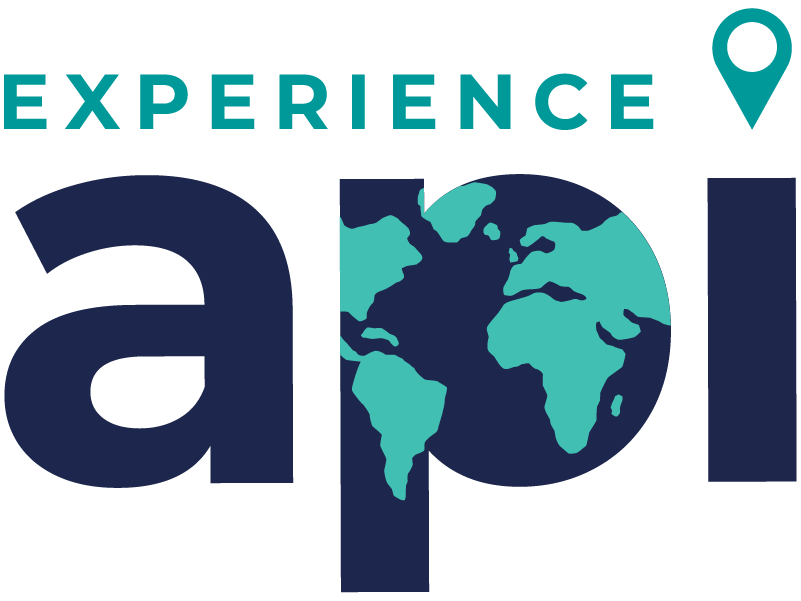
Why API
API offers best-in-class programming, with student well-being a high priority.
Our mission is to create better global citizens through international experiential learning. API programs are developed to be transformative, career-boosting experiences that include:
- Community involvement through optional volunteer programs with API Gives Back
- Cultural awareness through relevant coursework and time spent in multicultural student groups
- High-touch student support throughout the program
About API
Academic Programs International (API) was founded in 1997 and is dedicated to providing high-quality, affordable experiential learning programs. Their extensive pre-departure preparation, coupled with strong support services on-site, facilitates academic, cultural and linguistic learning. Within the supportive environment of the API programs, API participants are encouraged to explore their host communities and become increasingly independent and confident in their own abilities. They strive to make international educational experiences accessible to as many participants as possible, and, as such, works to provide multiple program components at a low program cost.
Diversity, Equity, & Inclusion
API is committed to providing enriching international experiences to its participants. We believe in the importance of promoting acceptance, dignity, and respect among people of all backgrounds. No matter who you are or where you come from, API will support you during your journey abroad.


